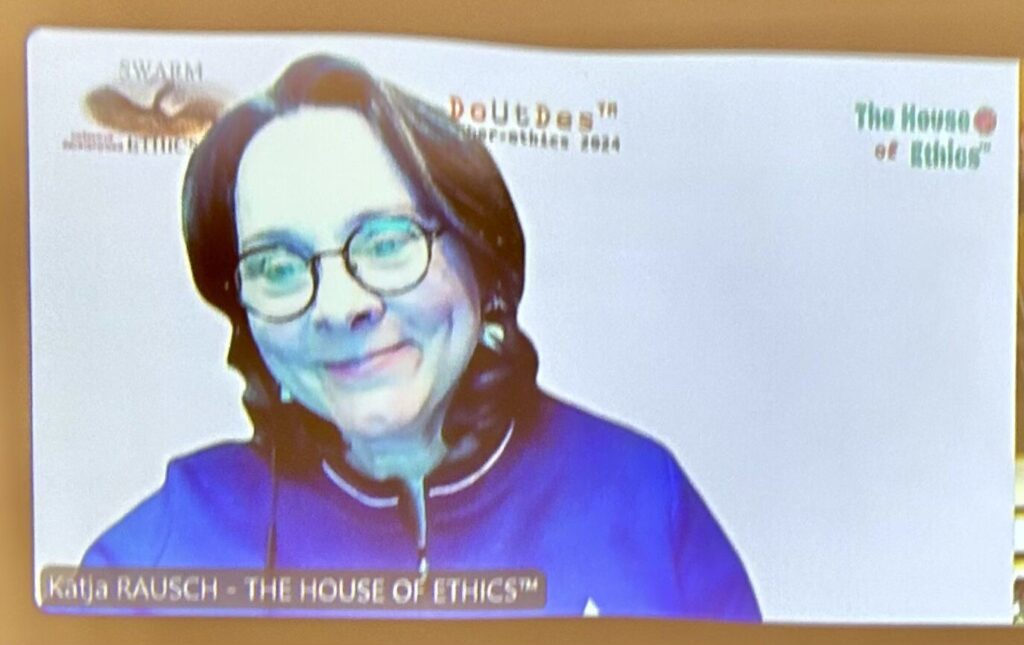What does ethics mean in times of AI, digital transformation and complex management systems? Around 70 students of the Master’s program in Executive Management addressed this question as part of the “Interdisciplinary Reflections” course series. Katja Rausch, founder of The House of Ethics™, tech consultant, author and lecturer at the Sorbonne Management School in Paris, was a guest.
The renowned expert presented Swarm Ethics™, an innovative ethical concept based on collective intelligence, systems theory and digital practice – highly relevant for managers who bear responsibility in today’s networked, dynamic organizations.
Why Swarm Ethics™ is crucial for aspiring managers
In companies that are increasingly decentralized, digital and agile, traditional top-down ethics are no longer enough. Swarm Ethics™ offers a viable framework for this: It views ethics as an emergent, self-organizing system based on the interaction of many individual moral perspectives (“moral molecules”). Like in a swarm, individuals act in a coordinated manner without central control – in solidarity, adaptively and consciously. This gives rise to shared norms that are not fixed but develop collectively.
What´s behind the concept
The underlying comparison with swarm intelligence comes from biology: a swarm of birds, fish or drones acts synchronously, without a central conductor – by exchanging information and reacting to the situation.
Applied to ethics, this means that norms are not created through rigid rules, but through conscious, continuous negotiation in networks – whether in organizations, communities or society. Ethics thus becomes practical, dynamic and context sensitive.
Her central thesis: “Ethics doesn’t have to be difficult, it has to be relevant.” And it must keep pace with reality – both technologically and socially.
>> More information about the Master’s program in Executive Management

